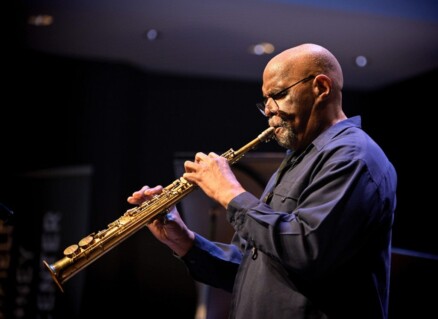News | R.I.P. Gil Scott-Heron, a revolutionary voice who fought the powerful with jazz and spoken word
Gil Scott-Heron, a man who was as important for his strong example of fearless resistance to structures of power as for his influence on the development of hip-hop, died on Friday. He was 62.
A large compendium of obituaries and remembrances is developing around the internet, and the breadth of what’s being written reflects how widely Scott-Heron’s musical and political influence roamed.
With a distinctive voice and musical vision, Scott-Heron early in his life developed a signature blend of bebop, blues, funk and spoken word. Working with jazz legends Ron Carter and Hubert Laws on his 1971 sophomore album Pieces of a Man, the 21-year-old college dropout laid down the gauntlet both creatively and socially: By reaching into the African tradition, he inspired other American Blacks to embrace spoken-word and rapping as fully fledged forms of expression, while reasserting the legitimacy of Afro-centric expression and delivering a social critique of white supremacy and systems of power that oppress impoverished and minority populations.
Scott-Heron was born in Chicago, but grew up in Tennessee and the Bronx, New York, before going to Lincoln University in Pennsylvania. It was there that he saw a performance by the Last Poets, the revolutionary spoken-word poetry troupe that would inspire him to forge his own brand of pan-African expression.
For a time in the 1970s, Scott-Heron and his musical accomplice Brian Jackson lived in the Logan Circle neighborhood of D.C. The duo recorded their famous album Winter in America in Silver Spring, Md., and the original title of the album – Supernatural Corner – stemmed from the fact that “we left Baltimore and moved into what appeared to be a haunted house on the corner of 13th Street, #1 Logan Circle in D.C.,” as Scott-Heron recalled in the record’s liner notes.
Scott-Heron’s music had the power to tug at us from the deepest parts of our humanity; he often sang of the lighter, more beautiful sides of life, but never lost that sense of urgency and impatience at the injustices of this country. Though his early passing is shaking, it provides us a moment to look this sage’s work square in the face and commit ourselves to remaking the world as Gil Scott-Heron would have us do.
Below is the music video to Scott-Heron’s searing political critique, “Washington, D.C.,” from the 1982 album Moving Target. RIP.
DC, DC jazz, Gil Scott-Heron, Logan Circle, Silver Spring, Washington


